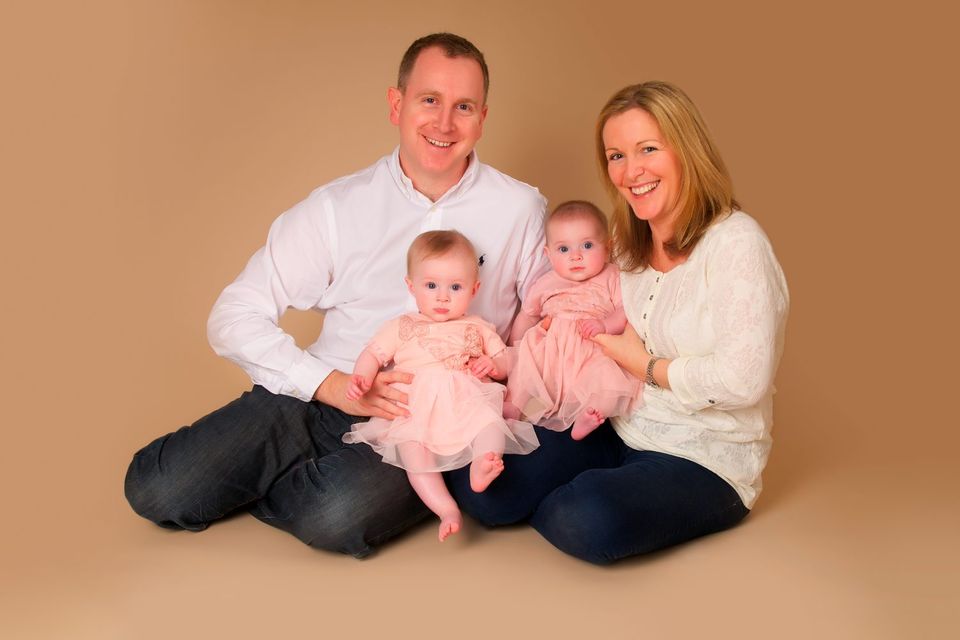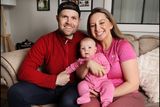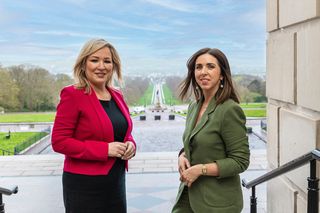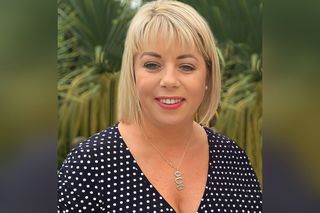The IVF survival guide: Everything you need to know about IVF
Thinking of fertility treatment? Alison Reede, a life and fertility coach who tried for six years to have a baby of her own, tells our reporter everything you need to know about IVF, from the emotional cost to the physical price
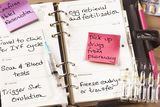
The ability to have children is something which many of us take for granted, until of course we are faced with fertility issues. This was certainly the case for Alison Reede (43), who admits that she simply assumed that, aged 35, she would have a honeymoon baby just like her mother did before her.
However, Alison endured a six-year long fertility struggle before she happily gave birth to her twin daughters Meghan and Gemma, and now coaches other women through the minefield-like process that is fertility treatment.
After six months of trying to conceive, Alison and her husband Neil began to worry and made an appointment with their GP, who sent them for further tests.
"We were told quite bluntly that we would definitely need assisted reproductive techniques to conceive our children," Alison explains. "I remember walking out that day and we were in complete disbelief and shock; you always had this picture in your mind of your family and all of a sudden that dream was just wiped."
The couple sought a second opinion, but the diagnosis was the same.
"I didn't really tell too many people, I had one good friend who knew the whole lot and my mum and my dad and then my husband's mum, and it was very hard for them as well," Alison says.
"To this day my mum still struggles with it, that this was the way I had to have my children because it had been such a natural thing for her and the rest of my family."
Alison began her fertility treatment journey with Intrauterine Insemination (IUI). "The IUI treatment was a learning curve, it wasn't too intrusive and it felt like the most natural or nearest treatment to natural conception, whereby my eggs did not leave my body," Alison says.
Alison pictured with her husband Neil and twins Meghan and Gemma, now 2
"It was more about targeted timing, putting the sperm in at the right time in your cycle and having scans and all of that," she adds.
"So we did two or three of them and on the third one my ovaries stimulated quite well and I had quite a lot of eggs, so they decided to switch me over to IVF protocol to make the most of those eggs."
IVF was Alison's best hope at this point.
"When I heard those three little letters 'IVF', I thought 'Wow! I just know this is going to happen' and there was so much hope pinned on it," Alison says. "At the end of that first cycle (which takes between four and six weeks) I actually did get pregnant and I just couldn't believe my luck. It was like winning the Lotto. We progressed to the maternity hospital at week 10 and were really excited, but when we got the scan there was nothing there.
"I had what is called a 'missed miscarriage', so there were no symptoms."
Alison remembers feeling "totally floored" by the news.
"It is a bereavement," Alison explains. "When you have longed for something so much, then you get it and it is just whipped away from you, it is a crashing to earth feeling; it was just horrific."
She and husband Neil took some time out to recover at this point, but returned to the fertility clinic to try again a few months later.
"We went back to the clinic and we did another two or three rounds of IVF that failed. I was pretty naive back then and I was frustrated," Alison says.
"Eventually then the penny dropped with me and I realised that I needed to take a bit more control of the situation; when I went into the clinic before that I thought that I would just put my feet up and they would get me pregnant.
"I had almost disengaged from it to a point where my mind wasn't actually tuned in to what I was trying to do. I had totally underestimated the connection between the mind and the body. So once that clicked for me, I sat down with the doctors to figure out what was going on, asking questions like 'what else can you do for me? Are we missing something?'"
She was advised of a seemingly endless variety of tests which could be done at this point, but was also warned that further investigation of this kind could be extremely costly - she requested that the doctor recommend the top three tests, which were likely to help her the most.
As a result of these investigations, Alison was discovered to have what are known as natural killer cells, which are a component of the innate immune system and play a strong role in the host-rejection of tumours and virally infected cells.
When the tests showed that she had these, it was finally something they could then repair and treat using intralipids, a fat immusion which can help regulate natural killer cells.
"The next cycle we did failed, but something was just willing me to do it again," Alison says. "I was really getting to my wits' end at this stage - physically, mentally, emotionally and financially.
"We got to the point where we said 'one more go' because at this point I was hitting 40 and low and behold on this cycle, we got some good eggs and some good embryos and we implanted two embryos.
"And in June 2013, our daughters Meghan and Gemma were born."
Alison's advice for those looking into fertility treatment:
Emotions
"Stress is a massive factor and I was probably stressed to the nines on my journey; with hindsight I think if I had managed myself better in terms of stress and striving for a better balance, I can't help but wonder if my journey would have been significantly shorter.
"The impact of infertility is totally underestimated; you never know when you start out on that journey how long you are going to be on it; the emotions that go with it are quite overwhelming at times.
"And the biggest emotion is fear. Fear of the unknown and of the uncertainty; not knowing what your destination is going to be is a scary thing and the disappointment that goes along with it every time you have a treatment that doesn't work, it is a loss every time and I cannot overstress that.
"You need to let yourself grieve for each little hope that you have had, because for each of those little hopes, you can nearly see a picture in your mind of a little baby."
Finances
"People can be very proud and will say 'Oh I know my parents would help me out, but I just don't want to take their money.' You have got to lose that pride and prioritise what is important to you. My best advice is to just take it cycle by cycle.
"There are some clinics now offering a part refund for the cost of your treatment if your cycles are unsuccessful; that is significant and I would love to see more clinics do this because it is very hard.
"We just didn't have the money, so my mum and dad helped and we had two jobs, which also helped. We spent up to €25,000 on IVF and we didn't have that money at the outset. I don't think anyone ever does."
Relationships
"On a whole, most of the couples I have met have stuck together through fertility struggles; on the rare occasion you hear that it will just take over one person more than the other and the relationship breaks down.
"I always stress the importance of talking to each other, but also listening; it is so important to understand how you are both feeling and step back for a moment because it is easy to get caught up in the process- and I did at times.
"I became selfish, it was all about me and you do feel that way because you are going through the worst of it in terms of the medication and the hormones.
"It is so important to take care of each other. You should not let your fertility journey take over your life, but it can. I could not get beyond all things baby and everything else suffered.
"Luckily, my relationship with my husband became stronger throughout, but other relationships definitely suffered because I had withdrawn socially."
Sex life
"When you are going through fertility treatment, you are shattered, you are drained and you are emotionally wiped, so sex is the last thing on your mind and it most definitely has an impact on your sex life.
"It sounds weird, you are in baby-making mode, but you don't want to have sex, so your mind is doing one thing and your body is going in another way completely. But all of this comes back to normal eventually, and not just your va va voom, even just your zest for life."
"It took me a while to get back to who I used to be because the whole process can eat away at you."
Food and Supplements
"The doctors generally will prescribe you the supplements as well as medications and I would advise people to only take what your doctor recommends.
"However, looking at your food is a good way to take in helpful vitamins and minerals too, so for vitamin C for example, your fruits, tomatoes, peppers, coloured vegetables are great. Pineapple and citrus fruits are also thought to be particularly good for boosting fertility and even if you are not with a clinic yet, I would recommend going to a fertility nutritionist."
What you give up
"I gave up alcohol and caffeine and by giving these up I found that I actually wanted more fruit and veg. It is a very hard road though and I always say to my clients 'if you want a bar of chocolate or a bag of chips just have it,' it can't be all doom and gloom."
Online forums
"Online forums can be so useful even if only to let you see that you are not alone in this. I found Rollercoaster.ie a great help and even though it was all anonymous at the start, I actually ended up meeting up with some of the other girls who had been through the same and became friends with them subsequently."
Staying positive
"My biggest piece of advice is to really mind yourself; do not lose hope, get second opinions and listen to your gut."
Alison was a qualified life, business and executive coach before her fertility journey. She now specialises in fertility coaching.
* For more information see alisonreedecoaching.com
Fertility treatments, possible side effects and financial cost
Ovulation Induction (OII): This involves the use of medications to stimulate the development of one or more mature follicles in a woman’s ovaries. Women with irregular cycles or those who are not ovulating may be treated this way as they don’t regularly develop mature follicles themselves. A pelvic ultrasound is carried out to check the lining of the womb (endometrium). This will determine how the follicles are developing. Blood tests also help reveal when the woman is most fertile. Average cost: €260-€500. Side effects may include: Bloating, fatigue, headaches.
Intrauterine Insemination (IUI): This is the introduction of purified semen into the uterus on the day of ovulation using a small soft catheter through the cervix. It’s often combined with ovulation induction (as above) to enhance the chances of success. This is often used as a first-line treatment when fertility difficulties are unexplained. Average cost: €400-€1,200. Side effects may include: Mild cramping.
In-vitro Fertilisation (IVF): This refers to the process where a woman’s eggs are fertilised outside of her body in a laboratory and once embryos have been produced, they are transferred back into the uterus a few days later. This treatment is recommended for women with absent, blocked or damaged fallopian tubes or in cases of unexplained infertility. Average cost: €4,000-€10,000. Side effects may include: Headaches, restlessness, hot flushes.
Intracytoplasmic Sperm Injection (ICSI): This method is used if conventional IVF is not an option. It involves injecting an individual sperm into the centre of the egg. This is carried out by the embryologist using a microscope under high magnification and once the procedure is complete, the eggs are monitored and then transferred back into the female as per IVF. Average cost: €4,000-€5,000. Side effects may include: Similar to the side effects of In-vitro Fertilisation.
* Prices will vary in different clinics. Always seek professional medical advice
Join the Irish Independent WhatsApp channel
Stay up to date with all the latest news

